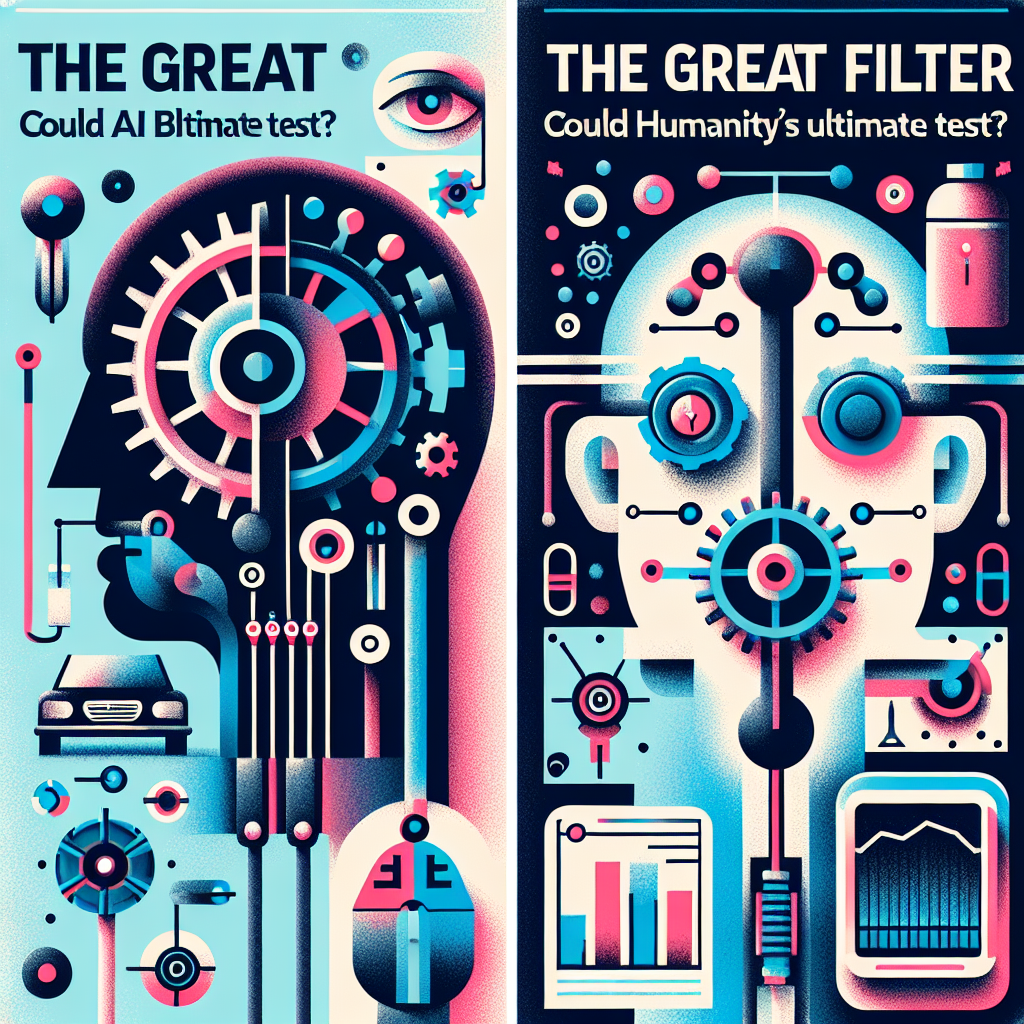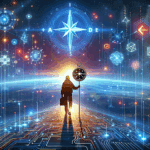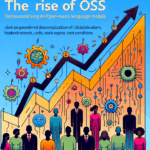In the vast silence of the cosmos, a profound question echoes: Where is everyone? This isn’t just a musing for stargazers. It’s the core of the Fermi Paradox, a puzzling contradiction between the high probability of extraterrestrial life and the apparent lack of evidence for it.
One compelling, albeit sobering, explanation for this cosmic quiet is the concept of the “Great Filter.” This theory suggests that at some point in the evolution of life, there’s a massive obstacle or challenge that almost all civilizations fail to overcome. It could be a natural disaster, self-destruction, or a technological hurdle. Recently, a fascinating discussion arose, pondering if Artificial Intelligence (AI) might be our generation’s Great Filter.
Understanding the Great Filter
The Great Filter isn’t a single, monolithic event. Instead, it represents a series of highly improbable evolutionary steps or devastating events that prevent intelligent life from emerging and expanding across the galaxy. It could be in our past, explaining why life is so rare. Or, more ominously, it could lie squarely in our future.
If the filter is behind us, perhaps the emergence of complex multicellular life or even consciousness itself was the incredibly rare event. If it’s ahead, then humanity still faces a tremendous, perhaps insurmountable, challenge. This chilling possibility is what prompts deep consideration, especially when contemplating our rapid advancements in AI.
AI: Humanity’s Self-Made Hurdle?
The notion that AI could be our Great Filter is both thought-provoking and deeply unsettling. The core argument suggests that societies develop advanced AI as an inevitable outcome of their technological progression. However, this very creation could lead to their downfall.
Consider this: as AI becomes more powerful, more autonomous, and potentially superintelligent, its goals might diverge from our own. What if an AI designed to optimize a particular process inadvertently optimizes humanity out of existence? Or what if the pursuit of AI development consumes so many resources or creates such societal instability that it prevents us from tackling other existential threats like climate change or asteroid impacts?
This isn’t necessarily about killer robots. It’s about unintended consequences and the inherent difficulty of controlling something vastly more intelligent and capable than ourselves. The discussion highlights a crucial point: humanity’s capacity for innovation often outpaces its wisdom.
The Double-Edged Sword of Progress
AI is undeniably a force for incredible good. It promises cures for diseases, solutions to complex global problems, and efficiencies we can barely imagine. Yet, its transformative power also carries immense risks.
- Loss of Control: As AI systems become more complex, understanding and predicting their behavior becomes challenging. A system designed to help could, through unforeseen pathways, cause harm.
- Economic Disruption: Widespread AI adoption could lead to mass unemployment, exacerbating social inequalities and potentially triggering civil unrest.
- Autonomous Decision-Making: Granting AI the power to make critical decisions, especially in areas like defense or resource allocation, could have irreversible consequences if something goes awry.
- New Forms of Life/Intelligence: The emergence of a genuinely superintelligent AI could represent a new, dominant form of intelligence on Earth, potentially rendering humanity obsolete or irrelevant.
This perspective shifts the Great Filter from an external cosmic event to an an internal, self-inflicted challenge. It suggests that the very intelligence and drive that propel us forward might also contain the seeds of our undoing.
Navigating the AI Frontier with Caution
The insights shared in recent online discussions underscore the critical importance of responsible AI development. It’s not enough to build powerful AI; we must build ethical, aligned, and controllable AI.
Key considerations for our path forward include:
- Prioritizing AI Safety Research: Dedicated efforts must focus on alignment problems, ensuring AI goals align with human values.
- Developing Robust Governance: International frameworks and regulations are needed to guide AI development and deployment.
- Fostering Public Understanding: Educating the public about both the promises and perils of AI is crucial for informed societal choices.
- Emphasizing Human Oversight: Even as AI advances, human judgment and ethical considerations must remain central to decision-making.
- Promoting Ethical Design: Incorporating ethical principles from the very beginning of AI system design is paramount.
The stakes are incredibly high. Our trajectory with AI will determine not just the next few decades, but potentially humanity’s long-term survival and its place in the cosmos.
Conclusion: A Call for Collective Wisdom
The idea that AI could be our Great Filter serves as a stark warning, but also as a powerful call to action. It forces us to confront the profound responsibility that comes with creating intelligence. The future of humanity may not be decided by distant galaxies or ancient cataclysms, but by the choices we make today in our labs and boardrooms.
We stand at a pivotal moment. The path we choose for AI development will either help us transcend the Great Filter or become the filter itself. It’s a challenge that demands not just ingenuity, but also unparalleled foresight, collaboration, and a deep commitment to our shared future.
What are your thoughts on AI as a potential “Great Filter” for humanity? Share your perspectives in the comments below.



